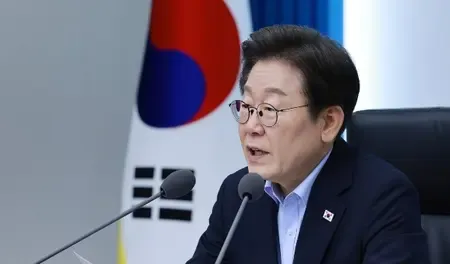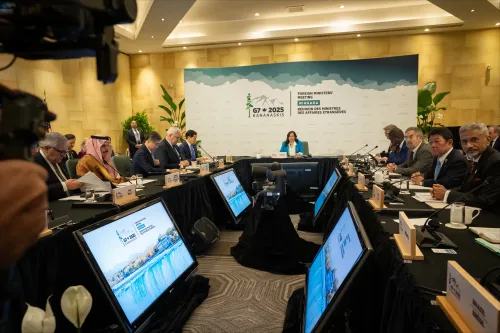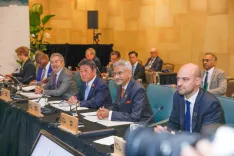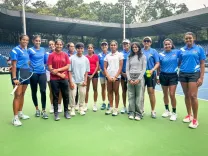Is South Korean President Lee Ready to Lead an UNSC Debate on AI?

Synopsis
Key Takeaways
- President Lee Jae Myung will preside over the UNSC debate on AI.
- South Korea is focusing on responsible AI use to ensure global peace.
- Lee warns of potential inequalities arising from AI.
- An 'AI Initiative' will be announced during APEC.
- Strengthening ties with Italy, France, and Poland is a priority.
Seoul, Sep 24 (NationPress) South Korean President Lee Jae Myung is poised to chair an open discussion at the UN Security Council (UNSC) regarding artificial intelligence (AI) in New York this Tuesday, marking a historic moment as he becomes the first South Korean president to head such a session.
The forthcoming UNSC meeting on AI is significant, coinciding with South Korea's assumption of the rotating presidency of the council this month as a non-permanent member for the 2024-2025 term.
During the debate, President Lee intends to convey a message advocating for the responsible utilization of AI to enhance international peace and security, as reported by Yonhap News Agency.
In his address to the UN General Assembly on Tuesday, he cautioned that merely adjusting to the AI era could result in polarization, inequality, and human rights violations. He emphasized that proactive measures could transform AI's capabilities into a catalyst for innovation, prosperity, and a more robust democracy.
As part of broader efforts to foster collaboration on AI, President Lee will unveil an "AI Initiative" at the upcoming Asia-Pacific Economic Cooperation (APEC) Economic Leaders' Meeting, scheduled for October 31-November 1 in the southeastern city of Gyeongju.
Prior to this session, Lee will engage in back-to-back discussions with the leaders of Italy, France, and Poland to explore avenues for strengthening bilateral ties, as mentioned by his office.
On Tuesday, President Lee met with Uzbek President Shavkat Mirziyoyev to discuss enhancing cooperation in critical minerals and infrastructure. This meeting, held on the sidelines of the UN General Assembly, marked their first in-person encounter following a phone conversation in July.
Lee expressed optimism about deepening economic ties between Uzbekistan, rich in mineral resources, and South Korea, known for its advanced technological expertise. He proposed collaboration in transportation and infrastructure, covering areas like railways, airports, and roads, as well as supply chains for essential minerals to create synergistic effects.
He noted that over 170,000 ethnic Koreans in Uzbekistan play a vital role in bolstering bilateral relations through various political and economic activities, and he called for ongoing support for them. The two leaders also agreed to collaborate for the successful hosting of the inaugural "Korea-Central Asia Summit," which South Korea plans to organize next year.









